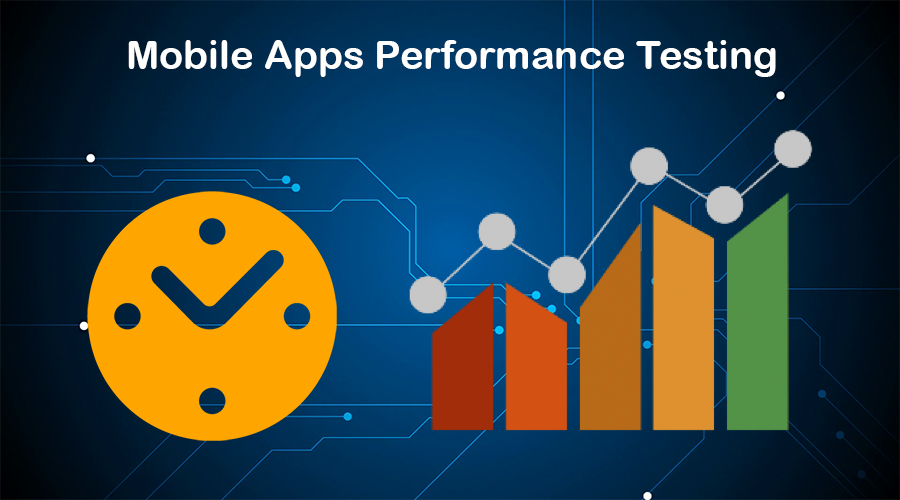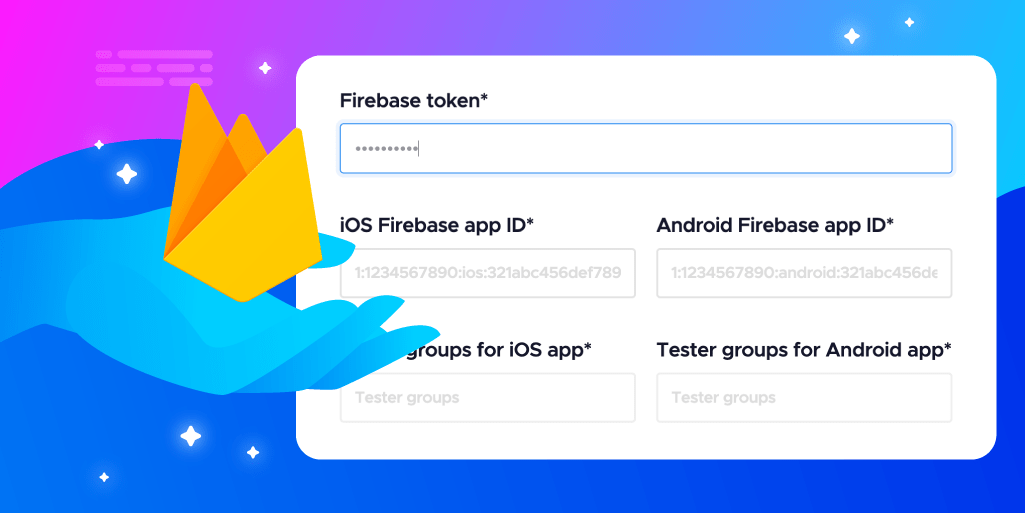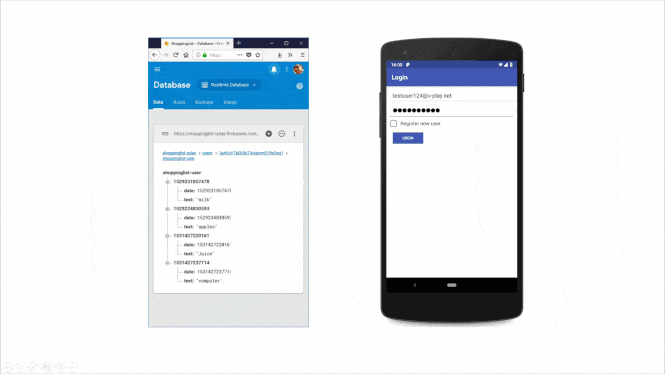How To Hook Up Firebase To Exisiting Apps?
- Firebase.google.com › Docs › Cloud-messagingSet Up A Firebase Cloud Messaging Client App On Android ...
- How To Hook Up Firebase To Existing Apps Iphone
- How To Hook Up Firebase To Existing Apps Windows 10
- See Full List On Firebase.google.com
- How To Hook Up Firebase To Existing Apps Free
- Sign Into Firebaseusing Your Googleaccount.
- What is Firebase?
- Setting up a firebase project.
- Frontend vs backend integration.
- Firebase functions.
- Firebase hosting.
- Blaze plan - get it fo free and don't go bankrupt

What is Firebase?
You can create this new Firebase Android app in either an existing Firebase project or a new project. Here are some tips about setting up your Firebase project: Visit Understand Firebase Projects to learn more about best practices and considerations for adding apps to a Firebase project, including how to handle multiple build variants. Directly Creating firebase app in firebase console then downloading google-services.json. SearchView is required since it allows us to hook up to.
Firabase is a light version of Google Cloud. You get essential cloud functionalities for app developers well packed and served through web based admin panel, CLI and specific lang packages. In most projects I prefer to work with Firebase rather that AWS. The reason is simplicity. Working with full cloud potential that is offered by AWS, Google Cloud or Azure is rarely needed for most app developers. That's why Google wisely gets what you need in the most scenarios and offers it in firebase. If you find that you need more cloud solutions that are not included in firebase just get them from Google Cloud as these two are connected, it's simple as that.
On the top of that it's totally free for big quotas actions and doesn't need an attached credit card. In the last section of this post I cover how to get premium plan for 0$ and be on the save side with your budget if you plan to heavily use firebase.
What has firebase to offer app developers?
- Authenticaton system
- NoSQL database
- Storage
- Hosting
- Cloud functions
- Machine learning models
Additionaly you can utilize roburst Analytics and Performance tests. If you develop mobile app there are even more options you can use like tracking issues, distributing your software, implementing adds and many more.
The last thing worth mentioning is a growing section of extensions that works seamlessly with different part of firebase. One of them is Email Triger which enables your app sending emails using serverless architecture.

How can web apps benetif from using firebase?
- Reduce all hardware cost even to 0 and still have a powerful web app. For example acloudguru is mainly deployed in the cloud and pays nothing for most of their architecture
- Gain a solid security of your database and buletproof access to the app
- Build APIs and deploy them in minutes
- Host your static files in one of the biggest CDN
- Utilize modern backend framework like Express.js in the cloud
When to avoid firebase?
I realy can't imagine a web app where all firebase components just won't work out. But there are scenarios when you should avoid specific funtionalities.
- When a database performance is the key factor. Firestore will never match a database deployed on your own server
- Avoid functions if you have complex, resource heavy computations to exucte
- If you need a real ACID as there is only a simple NoSQL database
- You perform advanced database queries (there are no such)
Setting up a firebase project
Requirements
- Goggle account
- any website or web app to work on (can be local hosted)
The beauty of Firebase is the way it can be integrated into your project. It realy doesn't matter what kind of application you develop and what parts of it you want to delegate to the cloud. It will work out in monolith, microsevices, server, serverless, static, SSR and mobile apps as well. But before you start your integration you have to set up your first project in the firabese panel.

Firebase.google.com › Docs › Cloud-messagingSet Up A Firebase Cloud Messaging Client App On Android ...
There are three simple steps form which help you get through, enabling Google Analytics is optional and you can add it later.
Frontend vs backend implementation
Default implementation
After creating a project you can follow the basic implementation for the web. It boils down to registering your app name and adding SDK as a JavaScript library in your frontend.
This kind of integration is a good starting point if you just want to try out firebase but there are plenty others possibilities how you can add it to your project. A better idea for modern web apps utilizing WebPack, Rollup or any other bundler is to go for firebase node modules which will work out not only in Vue, Angular or React projects.
Is firebase frontend implementation secure?
It depends. Using a frontend implementaton you are exposing your API keys and other vital config like database address, project id and so on. A big misconception is belief that it can harm your security because anyone can intercept and read this data as they are inserted in js files. It's true that can be easily done. But the idea of passing this credentials is meant for configuring your frontend package for easier use and analytics identification and they really shouldn't be considered as secret. The whole bunch of these keys is not enough to make any interaction with your firebase. So initialy your app is secure.
But when you start using specific components like database or storage you will encounter necessity to manage access to them (by default they are blocked for outer use.) And this is a time when your security come evaporate in a second. For example giving writting access for all unauthenticated users to your firestore database with exposed database address on the frontend can lead to disaster.
To sum app, frontend implementation with exposed API keys is secure but if it last depends on your access granting policy.
Do I need backend implementation?
To use full potential of firebase you should refer to the backend. This unnecessarily means that you need your own server. Practically anything for the web apps can be delegated to the firebase functions that work in serverless architecture (more on that in the next paragraph). If you decide to use backend your will gain access to the firebaseadmin package which can do practicaly anything with your firebase modules. When using your own servers you will have to use API service key which is secret and has to be secured. You can generate plenty of these keys with different roles (privileges) and use them in different parts of your backend. Notice that managing access to your components using specific keys ensures more solid security because of granular access from the backend.
What type of implementation is better?
It mostly depends on what kind od app do you develop and the skills of invloved people in the project. Definitely the most secure and performant wil be the sole backend implementation even for sereveless apps (firebase functions). On the other hand if your app is mainly frontend based there is no need to complicate things more than they should to be and I would stick with the frontend firebase library. For bigger projects you can also mix both types of implementation if it would help your team.
How To Hook Up Firebase To Existing Apps Iphone
Firebase functions
A cool thing about firebase functions is that you develop them totally separately of your web app and there is no such thing as frontend or backend integration. Functions can basically work as a part or the whole of your backend though. They start their execusion in a response to triggers or HTTP API calls. In order to use them I recommend firebase CLI.
Firebase hosting
How To Hook Up Firebase To Existing Apps Windows 10
You have variety of options how to use the firebase hosting. If you want to go fully serverless this is a ideal option because you can easily deploy your whole web app and get decent performance at none cost at all. If you use your own servers you can still pick any static assets and deploy them in the hosting gaining some performance and unloading your own machines. Either case just initiatate google hosting using firebase CLI and choosing hosting project option. This has to be done in the root of your web app.
Blaze plan
- get it fo free and don't go bankrupt
By default after setting up your project you land on a free Spark plan. It has a quite big quotas for all of the goodies available in Firebase and in most cases that should be enough for your app at least at the beginning. Obviously payable plans give your possibility to operate after you use up your free trier limits for the current month but it's not the only difference so it's worh to consider them ealier.
Why it's woth to swich to Blaze plan?

- still has a free trier but with much higher quotas
- you can combine any external API's in functions
- whole spectrum of locations for your hosted files
- get access to all firebase extentions
- you can get all premiums from Blaze by setting up your budget to 0 (read below)
See Full List On Firebase.google.com
You don't wanna be a bankrupt developer
How To Hook Up Firebase To Existing Apps Free
In Firebase there are no such thing like budget limits and many inexperienced developers and victims of hackers attacks ended up with huge bill from Google to pay. But there is a solution. At the begining of this article I mentioned that if you lack some functionality you can get it from the older brother - Google Cloud and this is such case. If you switched into premium plan go to the GC console and select a firebase project (as these two platforms are connected your project is already there). Find the billing section and then select or create a new billing account.
Sign Into Firebaseusing Your Googleaccount.
Fianlly go to the Budgets & alerts (side menu) and set your maxium amount to spend in the month span.
If you encounter problems in the billing set up I recommend Google docs related to set budgets and budgets alarms docs.